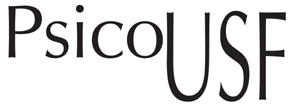The goal of this study is to identify sociodemographic, laboral and psychosocial risk factors of workaholism in 471 workers in Porto Alegre and metropolitan area. The instrument used was the reduced version of the Dutch Work Addiction Scale (DUWAS). The scale assesses workaholism in its two dimensions, excessive work and compulsive work. The results showed that from the sociodemographic variables, only the gender variable showed a significant difference, where women had higher rates of excessive work. As for the labor variables, excessive work had a positive association with contractual working hours and with working hours that were effectively carried out; and a negative association with the perception of being healthy. Compulsive work was negatively correlated to the time of professional practice and of work in the current company, to the perception of being healthy, and to satisfaction with life in general.
Workaholism; Excessive work; Compulsive work; Risk factors



